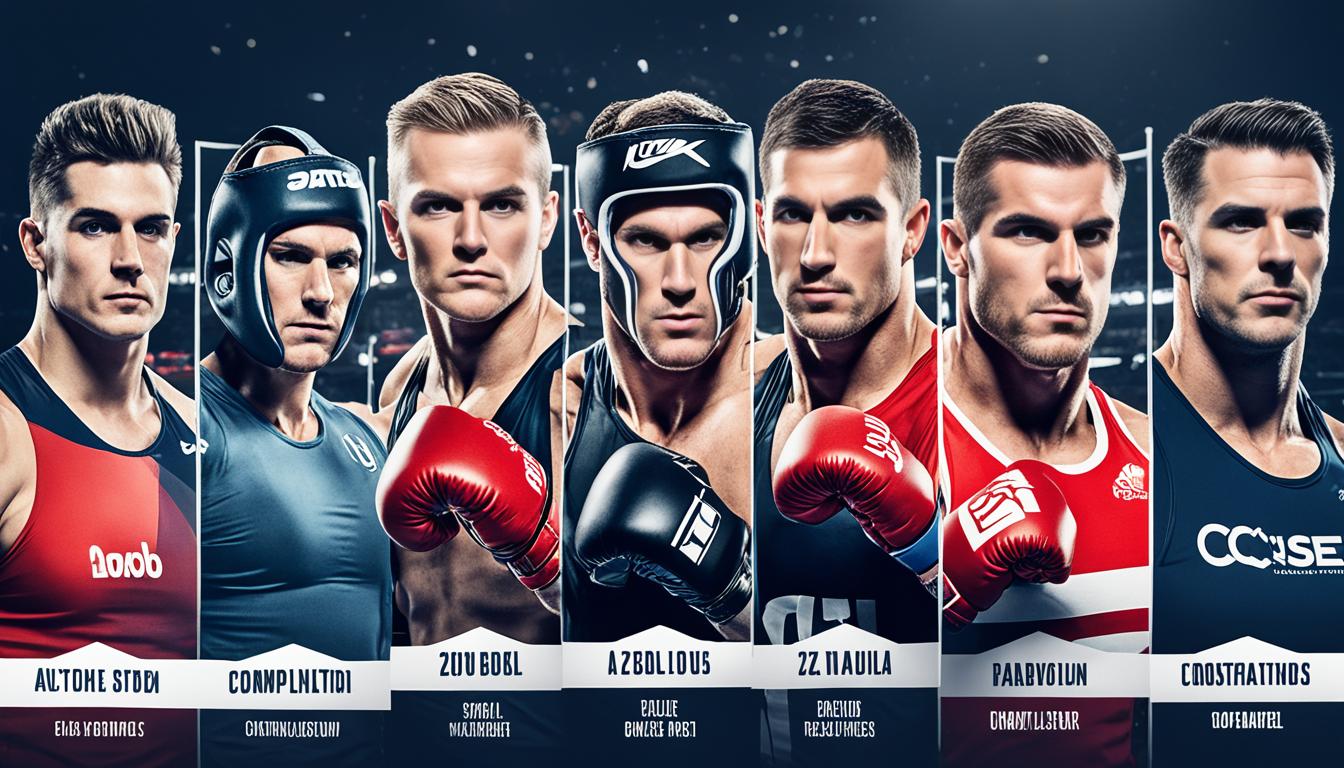Effective wedding venue marketing is essential for attracting couples and maximizing bookings in a competitive market. Strategic marketing can significantly enhance a venue’s visibility, ensuring that it stands out among the myriad of options available to couples planning their special day. Whether through utilizing digital platforms or engaging content, the right marketing approach can forge lasting connections with potential clients.
In a landscape where couples seek unique experiences, understanding and implementing modern marketing techniques is crucial. By leveraging digital marketing efforts and creating engaging content, venues can create appealing narratives that resonate with their target audience. This not only elevates their brand but also fosters trust and interest among prospective clients.
As venues explore promotional strategies and networking opportunities, the potential for increased bookings becomes evident. By combining effective marketing tactics with insightful engagement, wedding venues can enhance their appeal and presence in a crowded marketplace.
Key Takeaways
- Strategic marketing is vital for increasing a wedding venue’s visibility.
- Engaging content fosters connections with potential clients.
- Effective promotional strategies lead to more bookings and partnerships.
Understanding Wedding Venue Marketing
Effective wedding venue marketing requires a strategic approach that emphasizes understanding the target audience, developing a strong online presence, and creating a comprehensive marketing plan. Each crucial aspect plays a significant role in attracting engaged couples and increasing bookings.
Defining Your Target Audience
Identifying the target audience is essential for successful marketing. This involves analyzing demographics such as age, location, and personal interests.
For wedding venues, couples looking to tie the knot may range in age from their mid-20s to late 30s. They often seek venues that align with their vision for their special day, whether that be elegant, rustic, or modern.
Understanding these preferences will help venues tailor their marketing strategies effectively. Engaging content, targeted promotions, and personalized communications can increase relevance and emotional connection.
The Importance of a Strong Online Presence
In today’s digital age, a robust online presence is paramount for wedding venues. Couples frequently research venues online before making decisions.
Websites should be visually appealing and provide essential details, such as capacity, services, and pricing. High-quality photos showcasing the venue’s charm can captivate potential clients.
Additionally, social media platforms allow venues to showcase real weddings and client testimonials, enhancing credibility. Engaging content such as blog posts and videos can further attract and inform prospective clients, establishing the venue as a knowledgeable industry player.
Building a Wedding Venue Marketing Plan
A focused marketing plan is crucial for guiding efforts and ensuring effectiveness. First, venues should set clear objectives, such as increasing online inquiries or social media engagement.
Next, a mix of marketing strategies should be employed, including email marketing, social media advertising, and partnerships with wedding planners. Keeping content fresh and relevant helps maintain interest.
Finally, analyzing performance metrics allows venues to adjust strategies as needed. This data-driven approach helps refine marketing efforts, ensuring resources are allocated effectively to drive bookings.
Maximizing Digital Marketing Efforts
Effective digital marketing is essential for wedding venues seeking to increase visibility and attract clients. A well-rounded approach will incorporate SEO, social media strategies, and email marketing to effectively engage potential couples.
Developing a Comprehensive SEO Strategy
A comprehensive SEO strategy is critical for enhancing online visibility. By focusing on relevant keywords like “wedding venue,” “outdoor weddings,” or “affordable venues,” a wedding location can attract more organic traffic. It is important to incorporate these keywords into website content, meta tags, and descriptions.
Additionally, creating high-quality, informative content such as blogs about wedding planning can boost search rankings. Hosting virtual tours or photo galleries can improve user engagement, keeping visitors on the site longer and signaling search engines of its value.
Regularly updating content and ensuring a mobile-friendly website enhances user experience and boosts rankings in search engine results.
Leveraging Social Media Platforms
Social media platforms are powerful tools for reaching potential clients. Wedding venues should establish a strong presence on visual platforms like Instagram and Pinterest, showcasing stunning imagery of events held at their location. Engaging content, including behind-the-scenes looks or testimonials, can foster community and interest.
Utilizing targeted advertisements on Facebook allows for specific audience targeting—couples planning weddings within a certain age range or location. Running contests or giveaways can also encourage followers to share content, expanding reach without excessive spending.
Regular interaction with followers through comments or direct messages builds relationships and increases brand loyalty, making clients feel valued.
Effective Email Marketing Tactics
Email marketing remains a vital tool for maintaining client engagement. Creating segmented mailing lists allows wedding venues to send personalized content to different audience types—couples who recently inquired versus those who booked events.
Newsletters can offer insights on wedding trends, special promotions, or upcoming events. Including engaging subject lines enhances open rates, while visually appealing layouts can captivate readers.
Using automated follow-up emails post-booking can keep clients informed and excited about their upcoming event. Incorporating customer feedback and testimonials in emails further builds trust and connection with potential clients.
Creating Engaging Content
Effective marketing for wedding venues relies heavily on creating engaging content that speaks directly to potential clients. Key aspects include leveraging professional photography, virtual tours, and crafting a unique selling proposition that highlights what sets the venue apart.
Professional Photography and Virtual Tours
A wedding venue should invest in professional photography to capture its aesthetic and ambiance. High-quality images can showcase various setups, from ceremonies to receptions. These visuals should highlight the venue’s unique features, such as stunning architecture or scenic views.
Incorporating virtual tours adds another layer of engagement. Prospective clients can virtually explore the space, experiencing it from the comfort of their home. This interactive element can build interest and emotional connection, making it more likely that they will consider the venue for their special day.
Crafting a Unique Selling Proposition
The unique selling proposition (USP) is critical for differentiating a wedding venue from competitors. This statement should clearly communicate what makes the venue special, whether it’s exclusive amenities, breathtaking surroundings, or exceptional customer service.
By identifying target audience preferences, venues can tailor their USP to resonate more strongly with potential clients. Highlighting local attractions or customizable packages can further enhance appeal, giving couples compelling reasons to choose one venue over another.
High-Quality Images and Captivating Descriptions
Using high-quality images is essential for drawing in potential clients. Images should be well-lit and composed, capturing the venue in its best light. It is important to include a variety of shots that represent different event styles, from intimate gatherings to grand celebrations.
Complementing these images with captivating descriptions elevates marketing efforts. Descriptions should paint a vivid picture of what a couple can experience. Highlighting unique features and services, such as in-house catering or breathtaking landscapes, can entice couples to envision their wedding within that space.
Enhancing Visibility and Engagement
To attract engaged couples, wedding venues must prioritize enhancing their visibility and engagement. Key strategies include leveraging local SEO, utilizing platforms like Google My Business, and tapping into wedding publications. Additionally, paying attention to customer reviews and testimonials can significantly influence potential clients.
Google My Business and Local SEO
Claiming and optimizing a Google My Business listing is crucial for wedding venues. This platform allows venues to appear in local searches and Google Maps, driving traffic to their websites. Key features include:
- Business Information: Ensure accurate details such as address, hours, and contact information.
- Photos: Upload high-quality images showcasing different event settings.
- Posts: Share updates about events or special offers.
Local SEO plays a pivotal role as well. It involves optimizing the venue’s website for local search terms related to weddings. Incorporating keywords like “wedding venue in [city]” can enhance local search rankings, making it easier for potential clients to find the venue.
Tapping into Wedding Publications and Directories
Engagement with wedding publications and directories is essential for visibility. These platforms allow venues to showcase their services to a targeted audience. Key actions include:
- Submitting Listings: Ensure the venue is listed in popular directories to improve searchability.
- Advertising: Consider advertising in local wedding magazines or websites to reach engaged couples directly.
- Networking: Build relationships with wedding planners and vendors to gain referrals and featured placements.
Being featured in wedding publications can enhance credibility. Couples often trust recommendations from these sources, which can lead to increased inquiries and bookings.
The Power of Customer Reviews and Testimonials
Customer reviews and testimonials are powerful tools in shaping a venue’s reputation. Positive feedback can significantly influence prospective clients. Venues should actively encourage clients to share experiences through:
- Email Requests: Following up with clients via email for reviews after the event.
- Social Media: Highlighting testimonials across social platforms to reach a wider audience.
Responding to reviews, both positive and negative, showcases excellent customer service. This interaction demonstrates commitment to client satisfaction, enhancing trust and engagement with potential clients.
Promotional Strategies and Incentives
Effective promotional strategies are vital for wedding venues seeking to enhance visibility and attract clients. The right mix of offers, events, and partnerships can make a significant difference in securing bookings and building a loyal customer base.
Unveiling Special Deals and Packages
Special deals and packages are powerful tools for attracting couples. Venues can create enticing wedding packages that include essential services such as catering, decor, and floral arrangements. This can simplify planning for couples while offering clear value.
Seasonal discounts are another way to draw attention. For instance, a winter wedding offer might provide a percentage off the total price or complimentary services. Displaying these offers on the venue’s website and social media can increase visibility.
Additionally, limited-time promotions can create urgency. Sharing these offers through email marketing allows venues to stay top-of-mind with potential clients, fostering engagement that can lead to bookings.
Hosting Open Houses and Styled Shoots
Open houses provide direct interaction with engaged couples, allowing them to experience the venue firsthand. During these events, couples can visualize their wedding day while exploring the space set up for a ceremony or reception.
Styled shoots can be incorporated into open houses to showcase the venue’s capabilities. By collaborating with local vendors, venues can present a comprehensive picture that includes photography, floral arrangements, and catering options that couples might consider for their own weddings.
Promoting these events through social media and targeted ads can help attract a larger audience. Engaging potential clients in-person builds relationships and fosters trust, which is crucial in the wedding planning process.
Designing Referral Programs and Partnerships
Referral programs encourage satisfied clients and vendors to share their experiences. By offering incentives, such as discounts on future bookings or cash rewards, venues motivate referrals from past couples. This generates organic word-of-mouth marketing, vital for attracting new clients.
Forming partnerships with complementary businesses, like photographers and florists, can expand a venue’s reach. Cross-promotional marketing allows for shared audience access, benefiting both parties involved.
Creating package deals with these partners can offer clients unique experiences while enhancing the venue’s appeal. When couples see a cohesive offering from trusted vendors, it can influence their decision-making significantly.
Partnerships and Networking
Building strong partnerships and an effective network is essential for any wedding venue. Collaborating with industry professionals can enhance visibility, attract clients, and create mutually beneficial opportunities.
Collaborating with Wedding Planners and Vendors
Wedding planners are instrumental in connecting engaged couples to venues. Establishing relationships with them can provide increased referrals. Wedding venues should reach out to planners with a tailored pitch that highlights unique aspects of their venue.
Offer exclusive packages or incentives for planners to encourage them to recommend the venue to their clients.
In addition to wedding planners, venues can benefit from collaborating with other vendors, such as florists, photographers, and caterers. Creating joint marketing campaigns or package deals enhances the experience for clients and creates a seamless planning process.
Cross-promotion can drive traffic to each other’s services.
Connecting with Corporate Events Specialists
Many wedding venues also cater to corporate events, which can diversify their client base. By networking with corporate event planners, a venue can generate additional revenue streams.
Identifying local businesses and organizations can facilitate introductions to corporate event planners.
Participating in industry expos or networking events can showcase the venue’s offerings.
Providing corporate packages tailored to business needs, such as team-building events or holiday parties, can attract organizations looking for unique spaces.
Maintaining these relationships through regular communication and follow-ups will keep the venue top of mind when event planning arises.
Conversion Tactics
Focusing on conversion tactics is crucial for wedding venues looking to turn inquiries into actual bookings. Key elements include well-crafted calls-to-action and offering enticing venue tours to potential clients.
Effective Call-to-Action Elements
A strong call-to-action (CTA) can significantly influence booking rates. Effective CTAs are clear, concise, and create a sense of urgency. Phrases like “Book Your Dream Wedding Today!” or “Schedule a Venue Tour Now!” encourage immediate responses.
Incorporating buttons in vibrant colors can draw attention, while strategic placement—such as at the end of an inquiry form—makes them intuitive to access. Reiteration of offers, like seasonal discounts or limited availability, can enhance the sense of urgency. Additionally, using testimonials alongside CTAs can build trust, making potential clients more likely to take the next step in their journey.
Encouraging Venue Tours and Bookings
Offering personalized venue tours is an excellent way to convert interest into actual bookings. Couples often want to visualize their special day in the space. Hosting open houses or exclusive tour events can create excitement and provide an opportunity for attendees to ask questions.
Providing an engaging experience during the tour is essential. Presenting the venue’s unique features and showcasing testimonials can leave a lasting impression. After the tour, following up with a thank-you note, along with a limited-time offer, can encourage reservations. Additionally, collecting reviews from satisfied clients after their visit not only enhances credibility but also serves as valuable social proof for future customers.
Measuring Success and Optimization
Understanding how marketing efforts translate into bookings is crucial for wedding venues. By leveraging analytics and refining strategies, venues can enhance their visibility and attract engaged couples more effectively.
Tracking Marketing Success with Analytics
To assess marketing effectiveness, venues should utilize a range of analytics tools. Google Analytics, for instance, helps track website traffic, user demographics, and behavior. By observing which marketing channels drive the most visitors, it becomes easier to allocate resources toward the most effective strategies.
Key performance indicators (KPIs) to monitor include:
- Conversion Rates: Measure the percentage of inquiries that turn into bookings.
- Engagement Metrics: Track social media engagement, such as likes, shares, and comments.
- Email Open Rates: Assess the effectiveness of email marketing campaigns.
Regularly reviewing these metrics enables venues to make data-driven decisions.
Continual Refinement of Marketing Strategies
Successful marketing involves ongoing optimization. Once analytics reveal which strategies are working, it’s essential to continually refine them. This might involve adjusting targeted advertising campaigns to focus on specific demographics showing high interest.
Engagement with potential clients is vital. Venues can leverage testimonials and showcase recent events through video content to capture attention. Incorporating customer feedback into marketing materials can also enhance authenticity and attract more bookings.
Periodic A/B testing of campaigns can identify what resonates best with the target audience. By systematically optimizing based on performance data, wedding venues can improve their market position and achieve better results over time.
Frequently Asked Questions
This section addresses common inquiries about wedding venue marketing strategies. It covers social media usage, client attraction methods, unique venue features, marketing plans, digital marketing elements, and current trends in the wedding market.
How can a wedding venue effectively use social media for promotion?
A wedding venue can enhance its presence on platforms like Instagram and Facebook by sharing high-quality images of weddings held at the location. Engaging content, such as behind-the-scenes preparation or testimonials, can draw potential clients. Utilizing targeted ads can further increase visibility among couples planning their weddings.
What are the best strategies for attracting clients to a new wedding venue?
To attract clients, a new wedding venue should focus on building a strong online presence through an optimized website and active social media profiles. Hosting open house events can showcase the venue’s features directly to couples. Collaborating with local vendors and wedding planners creates valuable partnerships that can lead to referrals.
What are some unique wedding venue features that appeal to modern couples?
Modern couples often seek venues with distinctive characteristics such as scenic outdoor spaces, historical architecture, or eco-friendly practices. Flexibility in accommodation styles, like indoor and outdoor settings, or the ability to personalize decor, can significantly enhance appeal. Venues that offer all-inclusive packages with catering and planning services are also attractive.
How do I develop a marketing plan specific to wedding venues?
Developing a marketing plan for a wedding venue involves several key steps. First, one must identify the target audience and their preferences. Next, establishing a budget for various marketing channels, including online advertising and local outreach, is crucial. Finally, tracking analytics ensures that strategies can be adjusted based on performance metrics.
What should be included in a wedding venue’s digital marketing efforts?
Digital marketing efforts for a wedding venue should encompass a user-friendly website, active social media engagement, and an email marketing strategy. High-quality visuals of both the venue and past weddings should be featured prominently. Regular updates on blog posts, showcasing tips for planning weddings, can position the venue as a valuable resource for couples.
What trends are currently influencing the wedding venue market?
Current trends influencing the wedding venue market include increased popularity of outdoor weddings and smaller, more intimate ceremonies. Sustainable practices are becoming essential, with couples preferring eco-friendly venues. Additionally, customizable experiences and technology integration, such as virtual tours, are helping venues meet modern expectations.





